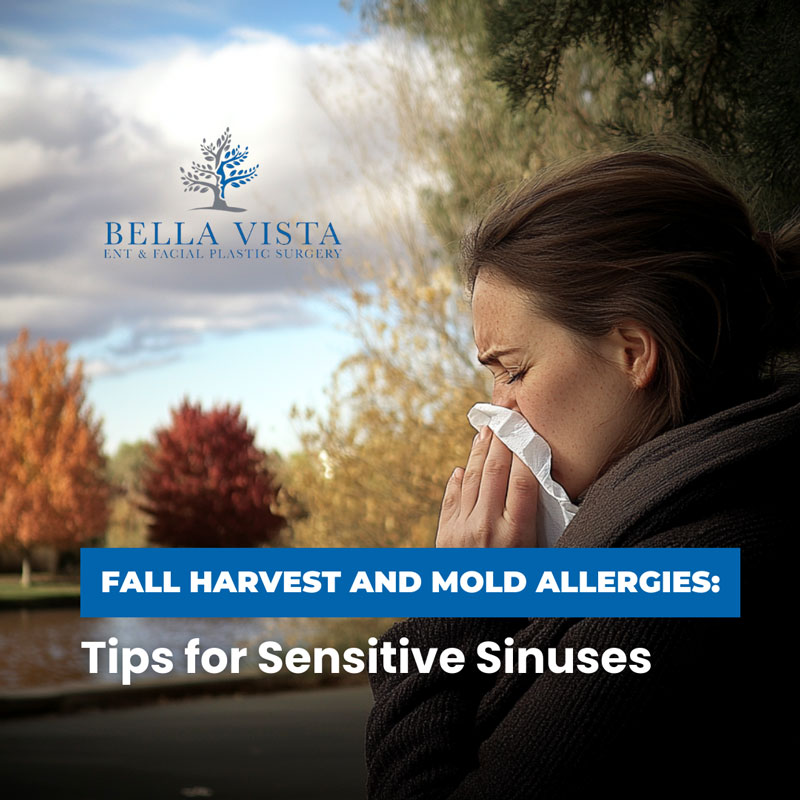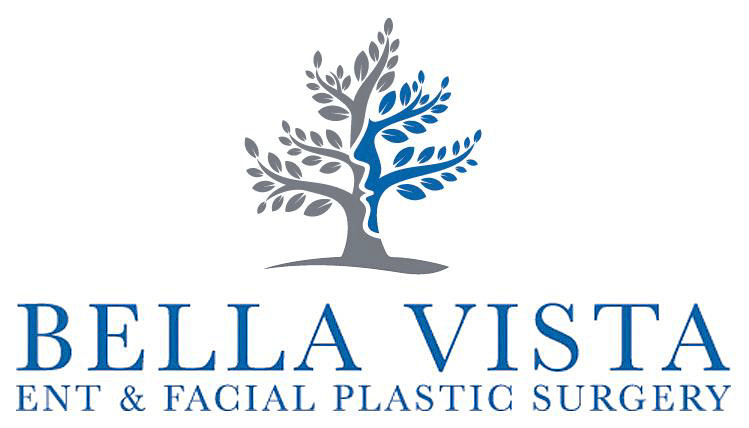Fall Harvest and Mold Allergies: Tips for Sensitive Sinuses
As the air turns crisp and the days grow shorter in Thousand Oaks, autumn’s beauty comes with a challenge for those with sensitive sinuses. While we may not see drastic leaf changes, the season brings increased plant debris and mold spores that can lead to sneezing, congestion, and sinus headaches. Outdoor activities, like hiking through our local trails, can intensify mold allergies. Understanding why these allergies spike in the fall and implementing simple strategies can help you stay comfortable and enjoy the season. Here’s how to protect your sinuses this autumn!

Why Fall Brings Mold Allergies
When plants start to break down in autumn, mold spores in the air multiply. Fallen leaves, damp grass, and piles of compost create the perfect environment for mold to grow. While it’s invisible to the eye, mold spreads by releasing spores into the air. When these spores get into your nose and sinuses, they can trigger reactions in anyone with mold sensitivities.
- Damp Leaves and Plant Debris: Leaves, mulch, and other plant material can trap moisture, creating an ideal environment for mold growth. When you rake or disturb these materials, mold spores release into the air.
- Indoor Mold: With the change in weather, we often spend more time indoors, where mold can also build up in damp spaces like bathrooms, basements, and even inside HVAC systems.
- Wind and Outdoor Activities: Fall winds can stir up spores, increasing mold exposure during outdoor activities. For those with sinus sensitivities, even a short time outside can trigger symptoms.
Tips for Managing Mold Allergies
Taking a few simple precautions can help you limit exposure to mold and manage sinus symptoms more effectively. Here are some tips to keep your allergies under control during fall:
- Wear a Mask Outdoors – When raking leaves or doing yard work, wearing a mask can help reduce the amount of mold spores you inhale. An N95 mask is especially effective at blocking small particles, including mold spores.
- Shower and Change After Being Outside – Mold spores can cling to clothing, skin, and hair. Showering and changing into clean clothes after spending time outside can help keep spores from spreading inside your home.
- Keep Indoor Spaces Dry – Since mold grows in damp places, using a dehumidifier can help keep humidity levels low in your home, especially in rooms like basements or bathrooms. Aim for humidity levels below 50% to discourage mold growth.
- Ventilate Your Home – When it’s dry outside, opening windows or running exhaust fans can help keep indoor air fresh. Be cautious about opening windows on damp days, as this can bring in more mold spores.
- Use a HEPA Air Purifier – Air purifiers with HEPA filters capture mold spores and other allergens, which can help keep indoor air cleaner. Place one in the rooms you spend the most time in, like your bedroom or living area.
- Talk to a Healthcare Provider for Persistent Symptoms – If your symptoms continue despite taking precautions, an ENT or allergy specialist can provide additional help. Treatments like antihistamines, nasal sprays, or even allergy shots may provide relief and help protect your sinuses over the long term.
Take Control of Your Fall Allergies
Fall mold allergies don’t have to spoil the season. By taking a few proactive steps, you can help protect your sinuses and reduce exposure to mold spores. Whether you’re enjoying a walk through the autumn leaves or tackling yard work, knowing how to manage mold allergens can make a big difference. And if your symptoms persist, don’t hesitate to reach out to Bella Vista ENT for expert medical advice. This fall, a few smart strategies can go a long way toward keeping your sinuses happy and your allergy symptoms under control.


